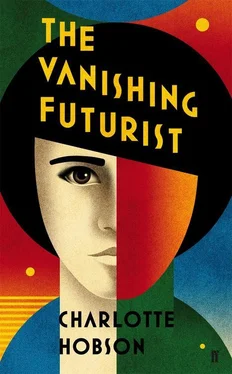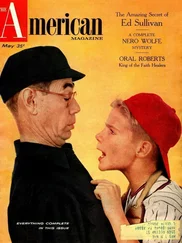‘Once things have settled down,’ I said – Mr Kobelev’s mantra. ‘By spring, once things are a bit calmer—’
Slavkin, who had been pacing about the room during this conversation, suddenly interrupted.
‘Yes, yes, but Gerty, perhaps you’d empty the water for us, would you?’ He pushed the basin into my hands, slopping it over my dress. ‘My word, I have been missing you both!’ he burst out before I’d left the room. ‘I’ve an idea, a plan. I had no one to discuss it with…’
I couldn’t help stopping and looking at him in astonishment.
‘Of course Gerty and I have talked it all over,’ he stammered, embarrassed. ‘She’s been a wonder, but—’
‘Gerty is a wonder,’ said Pasha. ‘We all know that.’
‘But I need other progressive minds to discuss my plans with, you understand.’
My face was burning. I emptied the basin in the laundry and sat there for a long while, until I calmed down.
The following day, Nikita drew me aside and said, without looking me in the eye, ‘We’ve always been friends, comrade. I hope you will do me the honour of remaining my friend even if certain aspects – which were always quite separate from our friendship – are no longer appropriate to our relationship.’
Part of me had guessed immediately what he was about to say, but nonetheless I was silenced for a moment. I stared at him and stammered, ‘What aspects?’ And when he took a deep breath and was about to tell me, I interrupted, ‘No, no – but why are they no longer app—’ the word he had used failed me, ‘no longer app— app—’
Slavkin looked at me. He seemed puzzled. ‘Are you all right, Gerty? Perhaps you should sit down?’
I sat on the stairs.
‘The fact is, that now Pasha and Sonya are here, and all our members are about to move in, the time has come to devote ourselves to the commune, do you see? We must all make sacrifices and our – our physical intimacy is one of them. We cannot have couples, with secrets and so on, forming divisions within the group. We must be a collective.’
I said nothing, determined not to cry. To my horror, he crouched down in front of me and put his hands on my shoulders. ‘I must tell you, Gerty, how grateful I am for your friendship. I’ve never known anyone like you. You have taught me so much about the human spirit, what generosity it is capable of… With you in the commune, I think we have a chance of making it work.’ He gave me a little squeeze and left. Was it my imagination, or was he almost jaunty as he stepped out of the front door?
I lay hunched over on the stairs for a long time, feeling the sharp edges of the mahogany panelling pressing into the skin of my forehead. Tears dripped onto the stair carpet, soaked in, and disappeared. Then I heard someone coming and struggled upright, straightening my clothes. Neither Slavkin nor I mentioned our liaison to the others – why would we? And I was grateful, on the whole, that none of the members of the commune noticed anything amiss – my low spirits, or the way Slavkin seemed to avoid me, or a thousand other pinpricks that pierced me each day.
So at the end of August 1918, the Kobelevs’ house on Gagarinsky Lane became the Institute of Revolutionary Transformation, and we – its raw materials, aching to be transformed.
The Institute of Revolutionary Transformation
Manifesto
WE, the Comrades of the Institute of Revolutionary Transformation – declare war on:
The Private – from now on there shall be no I, only We.
The Old – in this new world we shall build everything anew – Society, Family, Art, Science, Language, Nature, ourselves.
The Ego – the enemy within ourselves that sabotages all attempts at true Communism. It shall be dragged out and crushed.
We hereby renounce, joyfully and wholeheartedly, certain frills that society prizes: sexual activity, romance, wealth, power, marriage, family, success, luxury, leisure.
Comrades shall be expected to comport themselves with the iron discipline of Revolutionaries – chaste, frugal and dedicated to the cause.
All property shall be held in common, and all decisions shall be made by the commune as a whole. There shall be complete equality between comrades.
The non-objective aesthetic of the avant-garde will transform our commune and our city. The New World will look, feel and think in the language of Modernity.
We celebrate comradeship, cooperative effort, and every form of creativity.
And so, we aim to transform our own selves into true communards, capable of inhabiting the Communist State.
All Hail the Revolution!
Signed: Nikita Slavkin, Pavel Kobelev, Sofia Kobelev, Dr Marina Getler, Vera Getler, Gertrude Freely, Fyodor Kuzmin, Vladimir Yakov.
Institute of Revolutionary Transformation, Gagarinsky Lane, Moscow. 20 August 1918
* * *
The day began in the IRT with the clanging of Mr Kobelev’s huge copper gong – one of the few possessions of his that still remained in the house – at six each morning. How delicious those summer dawns were, the morning sun through the poplar trees dancing on the ceiling of my bedroom. I dressed rapidly; everything was quicker now – no dreary lacing of stays, no elaborate hair arrangements. All the female members of the commune – Sonya Kobelev, the sisters Marina and Vera Getler and I – wore our hair short and had exchanged our corsets and underpinnings for loose cotton dresses, and all of us were amazed at the difference it made. Whereas before we were hardly aware of our bodies and gave them no thought, except to feel uncomfortable, now suddenly I noticed the muscles sliding under the skin of my arms, I felt the air on my legs and the sweat trickling down my torso on hot days. And if I was careful, and worked hard, and concentrated on such matters as the muscles in my legs, the fresh morning air, and so on, then I found I could keep my mind off dark thoughts for whole hours at a time.
At six-thirty we sat down to eat breakfast in the airy, high-ceilinged dining room with its large windows giving onto the garden and listened while one of the members read something suitable – Gorky, perhaps – a relief, as the food was best not dwelt on. It was usually kasha , buckwheat porridge, or perhaps blondinka , as we called millet porridge, with salt fish. Even in the summer, when supplies were relatively plentiful, there was already the sensation of dread before you had started your bowl… the last spoonful was drawing near. You took smaller and smaller bites and you savoured the feeling of food on your tongue, in your mouth; you never swallowed too quickly. You found different ways to eat your portion; a slice of bread could make a whole plateful of tiny balls of dough. I remembered little Liza’s words, years before – ‘I don’t like to eat, I prefer to be hungry’ – and I understood her better now. The only way to overcome hunger was to welcome it in.
At the time we were brisk with ourselves. Communists are too tough to whine about hunger, we said. We joked about the Moscow Slimming Diet and then we changed the subject. But all these years later, I still have what my little grandsons call ‘the tins’ – the hoard of tinned and dry foods that I keep piled up to the ceiling under the stairs. My daughter Sophy tells me I am absurd, but I can’t help it. If you’ve once been hungry like that, you never quite feel safe again.
After we had scraped our bowls clean, if it was not a working day, we sat in the garden and debated how to run the commune. We set it up as if we were establishing a small independent state. We had a Customs House, run by two Customs Officials to whom all members handed over any food they came by. A Finance Ministry controlled most of the money the members might earn, apart from a small amount to be kept by individuals. A Triumvirate of Food Commissars was in charge of buying and bartering the supplies for the month. Small articles such as soap, paper, pencils, hairpins, and so on were in theory available from the Shop Without a Clerk, which was in a cupboard in the meeting room; a small red book was provided for members to note down what they had taken, and we relied – in this as in all our arrangements – on the communards’ good faith. All these positions were rotated weekly, and those who were not assigned any that week were expected to show solidarity with their labouring comrades. For example, while the Ironing Brigade was at work, volunteers might entertain them with songs or funny anecdotes.
Читать дальше





![Майкл Муркок - Спящая волшебница / The Sleeping Sorceress [= Участь Белого Волка, Рыцарь Хаоса, The Vanishing Tower]](/books/327544/majkl-murkok-spyachaya-volshebnica-the-sleeping-sorc-thumb.webp)






